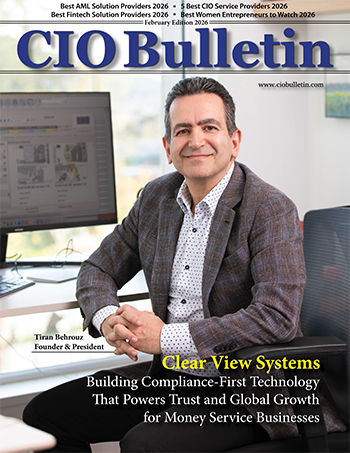Home Industry Crypto and virtual money Banks Are Now Embracing Blockc...
Crypto And Virtual Money

CIO Bulletin
07 October, 2025
The traditional banking sector – also known as TradFi – has long seemed reluctant to embrace any of the decentralization aspects that cryptocurrencies, and blockchain technology as a whole, promise. But after years of hesitance, banks have started embracing blockchain technology in their operations.
DeFi (Decentralized Finance) 2.0 is about the evolving blockchain that aims to meet the security and efficiency standards required for banking. DeFi 2.0 compromises without sacrificing the immutability, automation, and innovation that make it so valuable in the first place. In other words, it’s the result of the traditional banking sector and the decentralized finance sector compromising to meet each other halfway.
This evolution has been a necessity for both parties. The world is evolving with or without the banking sector. When banks don’t allow their customers to use cryptocurrencies, customers can instead find crypto exchanges without KYC that give them the technology they want. These exchanges additionally offer privacy.
According to a study of the biggest banks in the US, the majority of the largest American banks are either exploring or actively rolling out blockchain implementations or crypto services. 13 out of 25 banks say they’re either in the stage of exploring options, having announced options, or even having started offering them. This information indicates a big change in attitude in the TradFi factor that is sure to have a big impact during the next few years.
The potential impact of this on the banking industry could include reduced transaction costs, improved security, streamlined processes, and near-instant settlements.
But there will also be challenges in implementation, and it’s an undertaking that will require lots of new innovation and solutions.
Today, many banks carry technical debt. Although they appear modern from the outside, most run on COBOL, an ancient programming language that’s become obsolete in most cases, but in finance and governance legacy systems.
The banking industry needs an upgrade, but the transfer of sensitive information to a new system is an enormous endeavor and carries with it risk. But it could also serve as a motivator for banks that need changes and haven’t yet settled on a new system. A blockchain-based one might then be the solution they need.
One notable hurdle that will need to be addressed is around scalability and energy consumption. The decentralization benefit and robust security of blockchain necessarily require more energy – a high number of nodes need to validate each transaction, which translates to higher energy use and a slowing down of the network. The high level of security that depends on this system could be compromised.
“Distributing control among many participants can improve security, but hinders rapid threat response. Conversely, a more centralized system can react swiftly to attacks but concentrates control in fewer hands,” writes Adam Hayes on Investopedia.
Another foreseeable challenge is regulatory compliance. The decentralization aspect can, for instance, prove problematic in cases where there needs to be a person who can clearly be held responsible. The immutable aspect of blockchain could also be problematic when it comes to privacy concerns and regulations. Furthermore, laws regarding blockchain and crypto vary drastically between borders, creating further challenges for banks operating internationally.
But barriers can be overcome, and the new interest from banks will translate to resources being poured into finding solutions.
As we’ve seen, there’s already been lots of progress so far, with DeFi finding ways of recreating core banking functions such as borrowing, lending, trading, and asset management. Though a new system hasn’t been perfected, it’s clear that the concept is working. The future is likely to make up a new blend of DeFi and TradFi that translates to a more secure and efficient way of handling money and assets.

Insurance and capital markets







